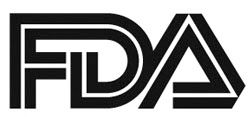FDA Orphan Drug Designation Granted to Durvalumab and Tremelimumab in HCC
Durvalumab and tremelimumab have been granted Orphan Drug Designation for the treatment of hepatocellular carcinoma, according to a press release from AstraZeneca.

Durvalumab (Imfinzi) and tremelimumab have been granted Orphan Drug Designation for the treatment of hepatocellular carcinoma (HCC), according to a press release from AstraZeneca.
The 2 drugs are being evaluated as treatment for patients with unresectable, advanced HCC who have not had prior systemic therapy and are not eligible for locoregional therapy in the phase III HIMALAYA trial (NCT03298451). The study is a randomized, open-label, multi-center study treating patients in 4 arms, which included durvalumab monotherapy, two regimens of durvalumab plus tremelimumab, or sorafenib (Nexavar) which is considered the standard of care. The study is being conducted in 189 centers and 16 nations, including the United States and Canada. The target enrollment number for the HIMALAYA trial is 1310 participants.
The primary end point of the study is overall survival, and the key secondary end points are progression-free survival and objective response rate. The other secondary end points include time to progression, disease control rate, and duration of response. The study is also evaluating adverse events as a separate outcome measure.
“Many patients with liver cancer are diagnosed and treated only after the disease is advanced, and there is an urgent need for new effective and tolerable treatments. We are eager to bring new potential options to these patients and look forward to the results of our ongoing phase III HIMALAYA trial later this year,” said José Baselga, executive vice president of Oncology R&D at AstraZeneca.
Patients are eligible to enroll in the study granted they have histopathological confirmation of HCC, no prior systemic therapy for HCC, Barcelona Clinic Liver Cancer stage B or stage C disease, Child-Pugh Score class A, and an ECOG performance status of 0 or 1 at the time of enrollment.
Patients with hepatic encephalopathy within past 12 months or who required medication to prevent or control encephalopathy, those with clinically meaningful ascites, main portal vein tumor thrombosis, active or prior documented gastrointestinal bleeding within 12 months, and hepatitis B virus (HBV) and Hepatitis C virus co-infection or HBV and Hepatitis D co-infection are excluded from the study.
Tremelimumab is a human monoclonal antibody that is being tested in combination with durvalumab in nonsmall cell lung cancer (NSCLC), small cell lung cancer (SCLC), bladder cancer, head and neck cancer, and liver cancer.
Durvalumab has no prior approvals to treat HCC in any country. In the United States and 53 other countries, durvalumab is approved as a curative-intent setting of unresectable, stage III NSCLC after chemoradiation. The drug is also approved for previously treated patients with advanced bladder cancer in the United States, and 10 other countries. Another approval for durvalumab is underway as the drug was grantedPriority Review by the FDA for the treatment of previously untreated extensive-stage SCLCin combination with chemotherapy.
Reference:
Imfinzi and tremelimumab granted Orphan Drug Designation in the US for liver cancer [news release]. Cambridge, United Kingdom: AstraZeneca; January 20, 2020. https://bit.ly/2Gcc5Oc. Accessed January 21, 20202.
Gholam Contrasts Lenvatinib With Other Options in Child-Pugh B HCC
December 21st 2024During a Case-Based Roundtable® event, Pierre Gholam, MD, discussed how post hoc and real-world analyses build upon the limited available trial data for treating patients with unresectable hepatocellular carcinoma with Child-Pugh B status.
Read More